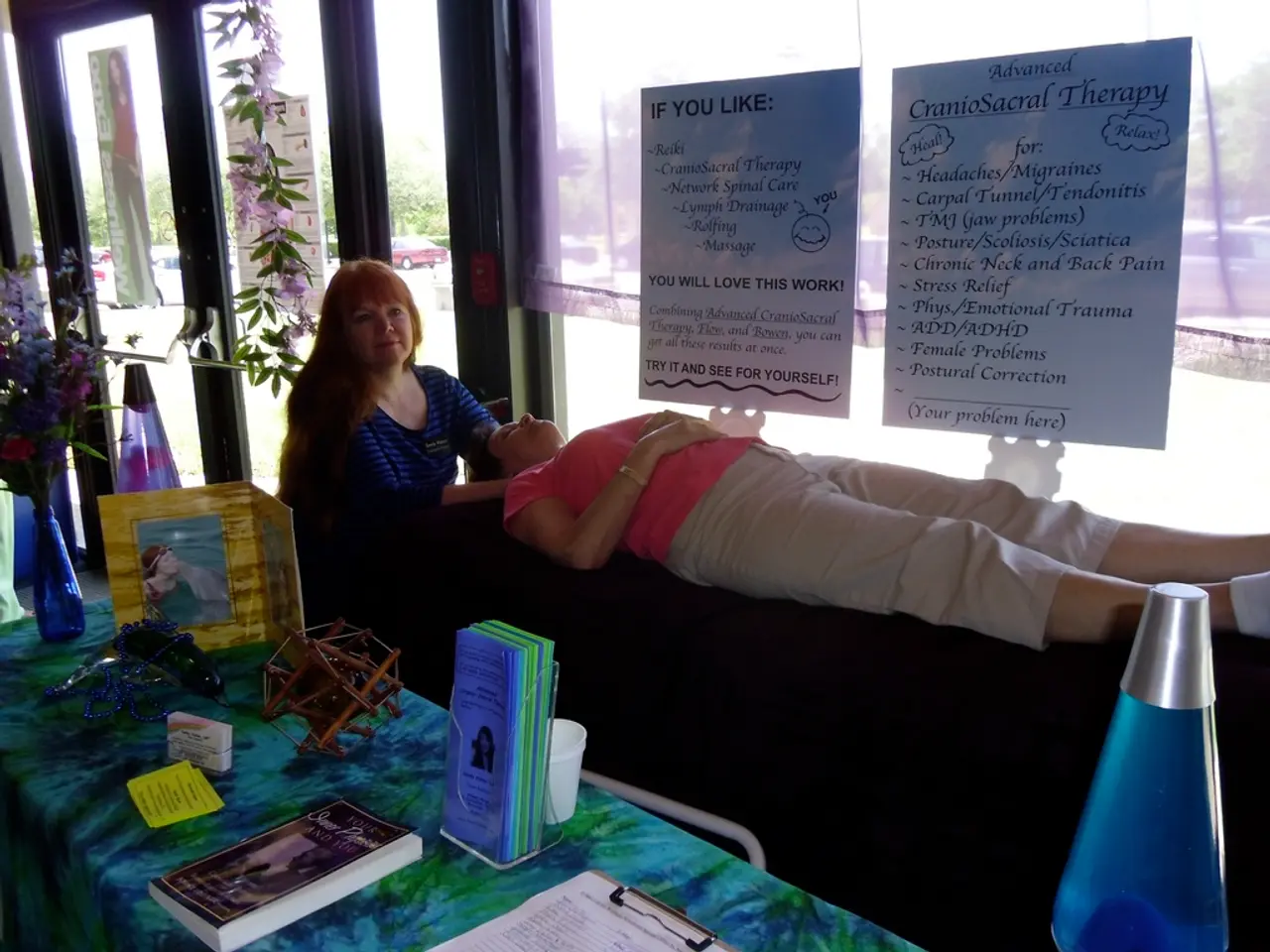Advancements in Mental Health Care via Technology: An Examination
In a groundbreaking development, technology is transforming the landscape of mental health care, making it more accessible and personalized for individuals worldwide. This shift is particularly evident in the rise of mental health apps and teletherapy services.
### Increasing Accessibility
One of the most significant advantages of these new technologies is their ability to break down geographical barriers. Teletherapy, for instance, enables patients to connect with licensed therapists remotely through video, voice, or chat sessions. This remote accessibility means that users can access mental health support regardless of their location, increasing treatment availability to rural or underserved populations [1][2][3].
Moreover, teletherapy and mobile apps lower barriers related to stigma by providing discreet access to mental health care. Patients can avoid physically visiting clinics, which helps those hesitant to seek mental health services in person [5]. The convenience offered by these platforms extends to flexibility in scheduling, allowing patients to choose times that suit their busy lives, and ensuring they remain in a safe, private environment like their home during sessions.
### Enhancing Personalization
Technology also offers a level of customization that was previously unattainable in mental health care. Apps utilize AI and client data to generate personalized treatment plans that adapt dynamically as the client progresses or shares new concerns. This customization ensures therapy remains relevant and responsive to individual needs [1][4].
Advanced apps analyze behavioural patterns (sleep, mood, activity) to detect subtle mental health changes early, enabling therapists to intervene proactively. Data visualizations help therapists understand client progress and adjust treatment accordingly [1]. Teletherapy platforms integrate features like secure messaging, session notes, progress tracking, and calendar management. These tools enable therapists to maintain personalized communication, monitor client goals and outcomes, and tailor interventions over time [1].
### A New Era for Mental Health Care
By merging teletherapy and app-based interventions, technology shifts mental health care from reactive, location-dependent models to proactive, patient-centered, and flexible approaches. This fundamental change broadens who can get care and how individualized that care can be [1][2][3][4][5].
Wearable devices, such as smartwatches, monitor heart rate and offer guided breathing exercises to promote mindfulness and reduce stress. These apps often use algorithms to tailor experiences based on an individual's mood and preferences. Mental health apps and platforms often incorporate mood tracking, meditation exercises, and community support features, serving as a personal mental health toolkit.
Many mental health apps offer free features, making it easier for individuals to start their journey toward better mental wellness. Teletherapy provides anonymity for those who may feel uneasy about face-to-face interactions, making it less daunting to seek help. Pairing wearable devices with apps offers access to a variety of resources aimed at enhancing emotional health and promoting mental well-being.
In conclusion, technology is revolutionizing mental health care, making it more accessible, personalized, and flexible. From AI-powered chatbots to wearable devices that monitor stress levels, these innovations are breaking down barriers and providing a new era of mental health support.
References: [1] https://www.psychiatryadvisor.com/home/topics/telepsychiatry/ [2] https://www.ncbi.nlm.nih.gov/pmc/articles/PMC6490744/ [3] https://www.ncbi.nlm.nih.gov/pmc/articles/PMC6490744/ [4] https://www.ncbi.nlm.nih.gov/pmc/articles/PMC6490744/ [5] https://www.ncbi.nlm.nih.gov/pmc/articles/PMC6490744/
Science plays a pivotal role in enhancing health-and-wellness, particularly in the field of mental health, where technology is revolutionizing care. Teletherapy, an outcome of this advancement, employs remote sessions for patients to connect with mental health professionals discretely, offering flexibility and accessibility to underprivileged populations.
Furthermore, mental health apps leverage AI to provide personalized treatment plans that adapt as users progress or face new challenges, fostering a more tailored and effective approach. These applications, combined with wearable technology, can track behavioral patterns, detect mental health changes early, and offer guided exercises for stress reduction and mindfulness, thus promoting overall mental wellness.




